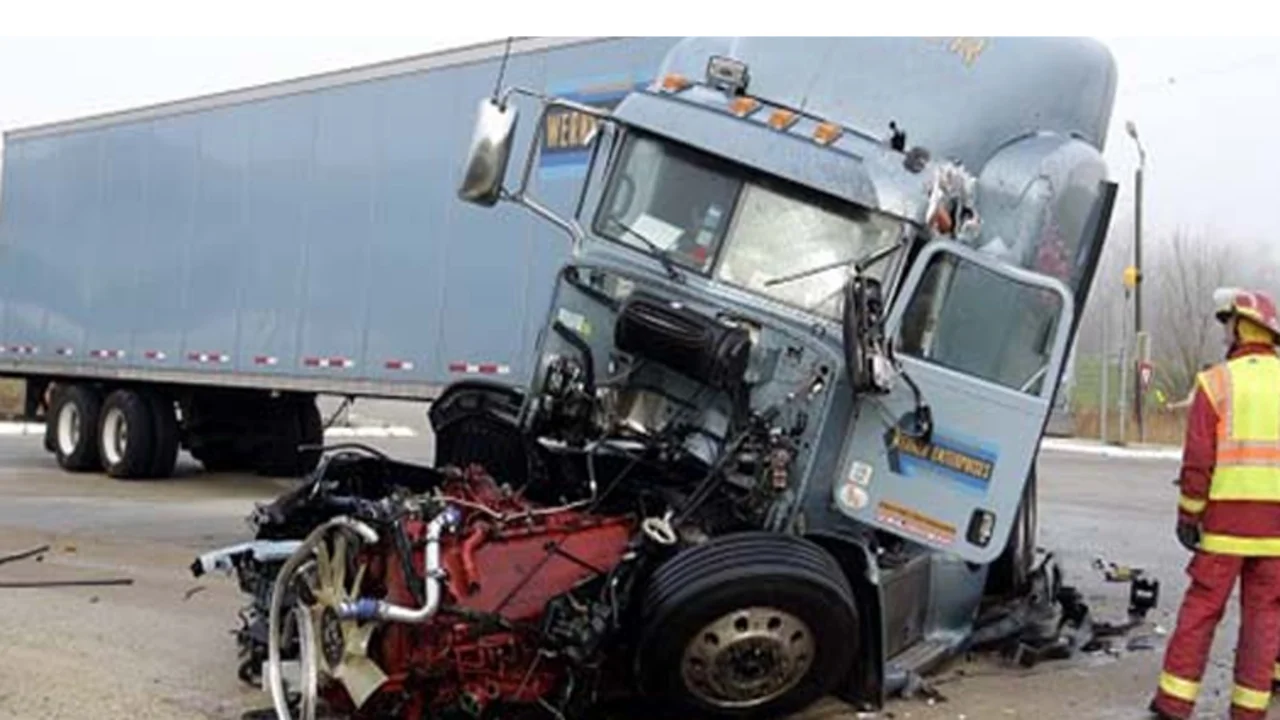The trucking industry is the backbone of supply chains, ensuring that goods reach their destinations on time. However, the pressure to meet tight schedules and handle heavy workloads poses serious risks for truck drivers. Intense demands often push drivers to their limits, resulting in fatigue, stress, and an increased likelihood of accidents. Long hours behind the wheel, minimal rest, and high-pressure delivery deadlines can compromise even the most experienced driver’s ability to operate safely.
Accidents caused by overworked truck drivers are dangerous for the drivers and other road users. Fatigued or rushed drivers are more prone to make critical mistakes, such as misjudging distances, reacting slowly, or falling asleep while driving. Understanding how intense workloads and tight scheduling contribute to trucking accidents is vital for creating safer conditions on the road.
How Tight Schedules Affect Truck Drivers’ Decision-Making
Truck drivers who face tight delivery deadlines are often forced to make snap decisions on the road. Whether it’s choosing to speed up to meet a deadline or skipping a rest stop to stay on track, these decisions can have dangerous consequences. The pressure to stay on schedule often overrides a driver’s ability to make safe choices.
When decisions are rushed, the risk of errors increases. Speeding, failing to adhere to traffic rules, or ignoring vehicle maintenance are common shortcuts drivers take under pressure. These shortcuts significantly increase the risk of accidents, as even the smallest error can be catastrophic when driving a large, heavy truck.
Fatigue: The Silent Killer in the Trucking Industry
Fatigue is one of the leading causes of trucking accidents, and it’s a direct result of intense workloads and insufficient rest. Truck drivers often work long hours, sometimes beyond legal limits, to meet demanding schedules. This lack of sleep impairs their reaction times, judgment, and overall awareness on the road.
Driving while fatigued is as dangerous as driving under the influence of alcohol. Fatigued drivers are slower to respond to hazards, more likely to fall asleep at the wheel, and less capable of maintaining control of their vehicle. The risk is particularly high during late-night or early-morning hours when the body naturally craves rest.
The Role of Tight Deadlines in Speeding-Related Accidents
To meet tight deadlines, truck drivers often feel compelled to drive faster than is safe, especially on long hauls. Speeding reduces a driver’s ability to react to sudden changes in traffic, weather, or road conditions, and it increases the severity of any collision that does occur.
Speeding also places greater wear and tear on the truck, making it harder to control, particularly when carrying heavy or unbalanced loads. The combination of a speeding truck and a massive cargo weight can lead to catastrophic accidents, with devastating consequences for both the driver and other road users.
How Long Hours Behind the Wheel Lead to Mental and Physical Strain
Long hours of continuous driving, common in the trucking industry, lead to mental and physical exhaustion. Truckers often sit in the same position for hours, which can cause discomfort, fatigue, and decreased concentration. This strain negatively affects their ability to stay focused on the road.
Mental strain from long shifts also impacts decision-making and reaction times. Drivers become less attentive, slower to notice hazards, and more likely to make mistakes. The combination of physical discomfort and mental fatigue creates the perfect conditions for accidents, particularly when quick reactions are needed.
The Dangers of Ignoring Rest Breaks to Meet Deadlines
Rest breaks are vital for truck drivers to maintain alertness and focus on the road. However, the pressure to meet tight deadlines often leads many drivers to shorten or skip their mandatory rest periods, putting themselves and others at risk. Below are the key dangers associated with ignoring rest breaks:
- Skipping or shortening rest breaks leaves drivers exhausted and more prone to accidents.
- Fatigue reduces reaction time and impairs decision-making, increasing the likelihood of crashes.
- Violating federal regulations on rest periods not only jeopardizes driver safety but also leads to legal consequences.
- Rest regulations are designed to prevent fatigue-related accidents and protect both the driver and their employer.
The Legal Consequences of Overworking Truck Drivers
Overworked truck drivers present a serious liability for trucking companies. When a truck accident occurs due to driver fatigue or the violation of federal regulations regarding work hours, the trucking company may be held legally responsible for any injuries, damages, or fatalities. Victims of such accidents may face long-term physical, emotional, and financial consequences, which makes it essential for them to seek proper legal representation. This is where Greeley trucking accident lawyers can be invaluable in helping victims pursue compensation and hold negligent companies accountable.
These legal professionals deeply understand the complexities surrounding trucking accident cases, guiding victims through every stage of the claims process. From investigating the accident and gathering crucial evidence to negotiating with insurance companies, their expertise is essential in building a strong case. Whether it’s pursuing compensation for medical bills, rehabilitation costs, or long-term disability, having a knowledgeable attorney by your side can significantly improve the outcome of a claim.
How Technology Can Help Manage Workload and Prevent Accidents
Technology is playing an increasing role in helping truck drivers manage their workloads and avoid accidents. Fleet management systems can monitor drivers’ hours, ensuring compliance with regulations and preventing them from exceeding their legal driving limits. Additionally, technologies such as fatigue detection systems and advanced driver-assistance systems (ADAS) can alert drivers when they are too tired or when they are engaging in risky driving behaviors.
Through leveraging technology, trucking companies can reduce the risk of accidents and help drivers stay within safe operating limits. These tools can also reduce the pressure on drivers, allowing them to take breaks as needed without jeopardizing their schedules.
The Role of Training and Education in Reducing Trucking Accidents
Proper training and continuous education are essential in mitigating the risks posed by tight schedules and heavy workloads in the trucking industry. Drivers need to be trained in safe driving practices, time management, and the importance of rest. Comprehensive training programs emphasizing fatigue management, defensive driving, and adherence to regulations can significantly reduce the likelihood of accidents.
Moreover, educating drivers on the dangers of cutting corners and the long-term impact of skipping rest breaks empowers them to make safer decisions. Trucking companies should regularly update their training modules to reflect industry best practices and technological advancements.

David Weber is an experienced writer specializing in business and related fields, delivering insightful and informative content for diverse audiences.




